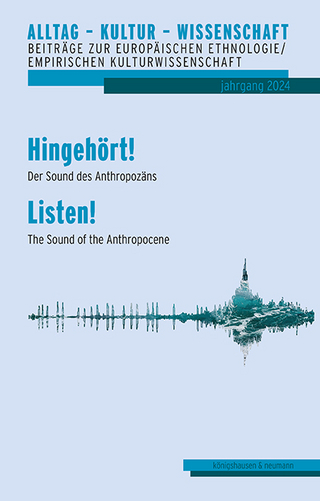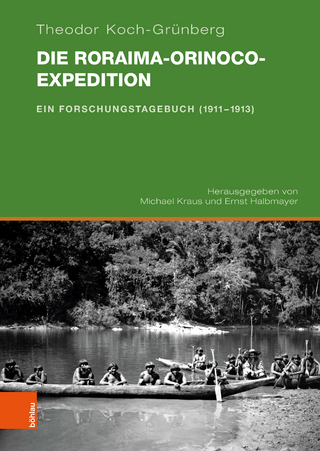
The Making and Unmaking of the Haya Lived World
Consumption, Commoditization, and Everyday Practice
Seiten
1996
Duke University Press (Verlag)
978-0-8223-1725-8 (ISBN)
Duke University Press (Verlag)
978-0-8223-1725-8 (ISBN)
- Titel z.Zt. nicht lieferbar
- Versandkostenfrei innerhalb Deutschlands
- Auch auf Rechnung
- Verfügbarkeit in der Filiale vor Ort prüfen
- Artikel merken
Suitable for historians, anthropologists, ethnographers, and scholars of cultural studies, this book explores Haya ways of constructing and inhabiting their community, and examines the forces that shape and transform these practices over time.
At the center of this subtle ethnographic account of the Haya communities of Northwest Tanzania is the idea of a lived world as both the product and the producer of everyday practices. Drawing on his experience living with the Haya, Brad Weiss explores Haya ways of constructing and inhabiting their community, and examines the forces that shape and transform these practices over time. In particular, he shows how the Haya, a group at the fringe of the global economy, have responded to the processes and material aspects of money, markets, and commodities as they make and remake their place in a changing world.
Grounded in a richly detailed ethnography of Haya practice, Weiss’s analysis considers the symbolic qualities and values embedded in goods and transactions across a wide range of cultural activity: agricultural practice and food preparation, the body’s experience of epidemic disease from AIDS to the infant affliction of “plastic teeth,” and long-standing forms of social movement and migration. Weiss emphasizes how Haya images of consumption describe the relationship between their local community and the global economy. Throughout, he demonstrates that particular commodities and more general market processes are always material and meaningful forces with the potential for creativity as well as disruption in Haya social life. By calling attention to the productive dimensions of this spatial and temporal world, his work highlights the importance of human agency in not only the Haya but any sociocultural order.
Offering a significant contribution to the anthropological theories of practice, embodiment, and agency, and enriching our understanding of the lives of a rural African people, The Making and Unmaking of the Haya Lived World will interest historians, anthropologists, ethnographers, and scholars of cultural studies.
At the center of this subtle ethnographic account of the Haya communities of Northwest Tanzania is the idea of a lived world as both the product and the producer of everyday practices. Drawing on his experience living with the Haya, Brad Weiss explores Haya ways of constructing and inhabiting their community, and examines the forces that shape and transform these practices over time. In particular, he shows how the Haya, a group at the fringe of the global economy, have responded to the processes and material aspects of money, markets, and commodities as they make and remake their place in a changing world.
Grounded in a richly detailed ethnography of Haya practice, Weiss’s analysis considers the symbolic qualities and values embedded in goods and transactions across a wide range of cultural activity: agricultural practice and food preparation, the body’s experience of epidemic disease from AIDS to the infant affliction of “plastic teeth,” and long-standing forms of social movement and migration. Weiss emphasizes how Haya images of consumption describe the relationship between their local community and the global economy. Throughout, he demonstrates that particular commodities and more general market processes are always material and meaningful forces with the potential for creativity as well as disruption in Haya social life. By calling attention to the productive dimensions of this spatial and temporal world, his work highlights the importance of human agency in not only the Haya but any sociocultural order.
Offering a significant contribution to the anthropological theories of practice, embodiment, and agency, and enriching our understanding of the lives of a rural African people, The Making and Unmaking of the Haya Lived World will interest historians, anthropologists, ethnographers, and scholars of cultural studies.
Brad Weiss is Associate Professor of Anthropology at the College of William and Mary.
Acknowledgments vii
1. An Orientation to the Study 1
I. Making the World 27
2. "Evil Flee, Goodness Come In": Creating and Securing Domesticity 29
3. Heartplaces and Households: Haya Culinary Practices 51
4. Mealtime: Providing and Presenting a Meal 80
5. A Moral Gastronomy: Value and Action in the Experience of Food 127
II. The World Unmade 151
6. Plastic Teeth Extraction: An Iconography of Gastrosexual Affliction 155
7. "Buying Her Grave": Money, Movement, and AIDS 179
8. Electric Vampires: From Embodied Commodities to Commoditized Bodies 202
9. Conclusions: The Enchantment of the Disenchanted World 220
Notes 227
References 239
Index 247
| Reihe/Serie | Body, Commodity, Text |
|---|---|
| Zusatzinfo | 9 b&w photographs |
| Verlagsort | North Carolina |
| Sprache | englisch |
| Gewicht | 680 g |
| Themenwelt | Sozialwissenschaften ► Ethnologie |
| Sozialwissenschaften ► Soziologie | |
| ISBN-10 | 0-8223-1725-7 / 0822317257 |
| ISBN-13 | 978-0-8223-1725-8 / 9780822317258 |
| Zustand | Neuware |
| Haben Sie eine Frage zum Produkt? |
Mehr entdecken
aus dem Bereich
aus dem Bereich
Wert, Tausch und menschliches Handeln
Buch | Softcover (2023)
diaphanes (Verlag)
28,00 €
Buch | Softcover (2024)
Königshausen u. Neumann (Verlag)
28,00 €
ein Forschungstagebuch (1911-1913)
Buch | Hardcover (2023)
Böhlau (Verlag)
100,00 €


